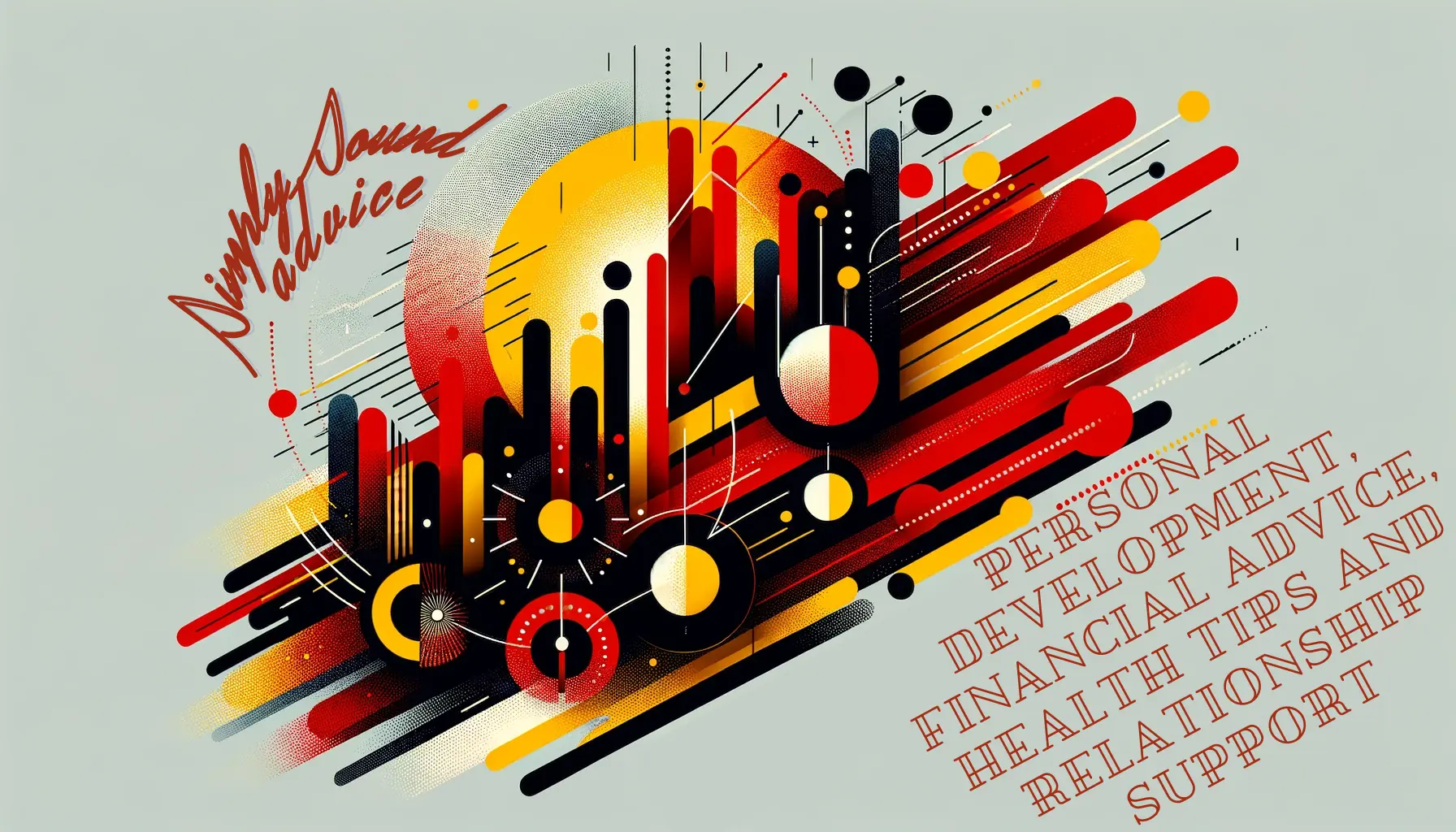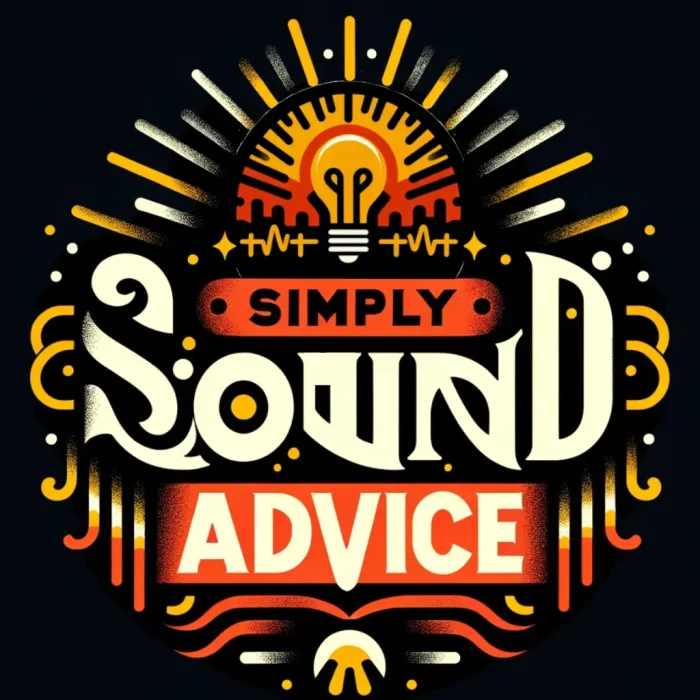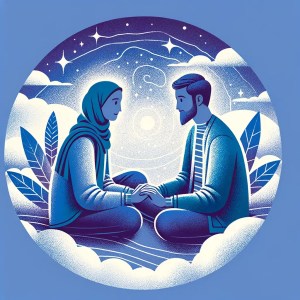- Unveiling the New Love Paradigm: Why Ethical Non-Monogamy and Open Relationships Are Reshaping Modern Romance
- Are We on the Cusp of a Modern Love Revolution?
- The Transformative Era of Love
- A Journey Through Time: The Shifting Sands of Love
- The Numbers Don’t Lie: The Rise of Ethical Non-Monogamy
- The Cultural Tapestry: How Ethical Non-Monogamy Fits In
- The Generational Factor: Millennials and Gen Z Take the Lead
- The Quest for Fulfillment: Are We Missing Out?
- The Data Speaks Volumes: Satisfaction in Numbers
- The Pleasure Principle: More Than Just Physical Satisfaction
- The Emotional Quotient: Beyond the Bedroom
- The Illusion of Fidelity: Is Monogamy Really Synonymous with Loyalty?
- The Uncomfortable Truth: Infidelity Statistics
- The Transparency Factor: Honesty in Open Relationships
- The Emotional Paradox: Can Open Relationships Be More Loyal?
- The Silent Elephant in the Room: Why Communication Matters
- The Open Dialogue: A Pillar of Success in Open Relationships
- The Emotional Payoff: Reaping the Benefits of Open Communication
- The Ripple Effect: How Ethical Non-Monogamy Influences Other Areas
- The Mind Matters: Is There an Intellectual Dimension to Open Relationships?
- The Educated Choice: Data on Higher Learning and Open Relationships
- The Critical Thinkers: Why Education Matters in Ethical Non-Monogamy
- The Ripple Effect: Beyond the Classroom to the Bedroom
- The Preconceived Notions: What We Think We Know
- The LGBTQ+ Myth: Setting the Record Straight
- The Gender Myth: It’s Not Just a “Guy Thing”
- The Age Myth: It’s Not Just for the Young and Restless
- The Unspoken Taboo: Society’s Silent Judgment
- The Discrimination Dilemma: Statistics Unveil the Truth
- The Media’s Role: How Pop Culture Shapes Perception
- The Path Forward: Changing the Narrative
- The Pursuit of Happiness: A Universal Quest
- The Joy Quotient: Data on Happiness Levels
- The Emotional Landscape: Beyond Surface-Level Happiness
- The Psychological Perks: A Deeper Dive
- The Trust Equation: More Than Just a Feeling
- The Safety Net: Data on Trust and Safe Practices
- The Trust Spectrum: A Comparative Analysis
- The Safety Protocols: Beyond the Physical
- The Winds of Change: A Cultural Shift in Relationship Dynamics
- The Numbers Don’t Lie: Statistical Evidence of a Growing Trend
- The Mainstreaming of Ethical Non-Monogamy: A Cultural Milestone
- The Future is Open: What Lies Ahead?
- The Relationship Revolution: A Recap
- The Happiness Equation: More Than Just Numbers
- The Trust Factor: A New Framework for Loyalty
- The Cultural Shift: A Sign of the Times
- The Final Verdict: Is Monogamy Truly Outdated?
Unveiling the New Love Paradigm: Why Ethical Non-Monogamy and Open Relationships Are Reshaping Modern Romance
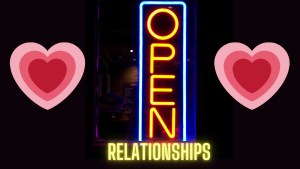
Introduction: The Modern Love Revolution—Open Relationships and Ethical Non-Monogamy
🌟 In a society that’s continually evolving, the age-old concept of monogamy is facing its most significant challenge yet. 🌟
Are We on the Cusp of a Modern Love Revolution?
With the rise of ethical non-monogamy and open relationships, many are beginning to question whether traditional monogamous partnerships are still the gold standard. It’s not just a fleeting trend; it’s a question that’s capturing the hearts and minds of people worldwide.
🔍 What’s at Stake?
This article aims to delve deep into this intriguing shift, exploring the benefits and complexities of ethical non-monogamy and open relationships. We’re not just scratching the surface; we’re diving into the nitty-gritty of what makes these alternative relationship models tick.
The Transformative Era of Love
As we navigate through this transformative era, it’s time to ask the question: Is monogamy truly the best path, or is there a new, more fulfilling way to love and be loved?
📣 Your Invitation to Explore
So, if you’ve ever found yourself pondering the limitations of monogamy or curious about the enriching world of open relationships and ethical non-monogamy, you’re in the right place. Prepare to have your perspectives challenged and your horizons broadened.
By the end of this article, you’ll have a comprehensive understanding of why ethical non-monogamy and open relationships are more than just buzzwords—they’re potentially the future of love as we know it. 🌈
The Evolution of Relationship Dynamics: From Monogamy to Ethical Non-Monogamy and Beyond
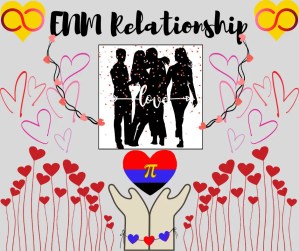
A Journey Through Time: The Shifting Sands of Love
Relationships, like everything else, are subject to the winds of change. If we were to hop into a time machine and travel back a few centuries, the concept of ethical non-monogamy would be as foreign as smartphones. Fast forward to today, and it’s a term that’s gaining traction, challenging the monogamous status quo.
The Numbers Don’t Lie: The Rise of Ethical Non-Monogamy
According to a report by Psychology Today, approximately 4% of Americans are now engaged in some form of ethical non-monogamy. Another study published in Taylor & Francis Online reveals that around 12% of sexually active adults have had at least one non-monogamous experience. These aren’t just numbers; they’re signs of a seismic shift in how we approach relationships.
📊 Statistical Spotlight
- 4% of Americans are in ethical non-monogamous relationships.
- 12% of sexually active adults have had a non-monogamous experience.
The Cultural Tapestry: How Ethical Non-Monogamy Fits In
Ethical non-monogamy isn’t just a Western phenomenon; it’s a global trend. From polyamory in the United States to open marriages in various cultures, the fabric of open relationships is woven into societies worldwide.
The Generational Factor: Millennials and Gen Z Take the Lead
It’s worth noting that younger generations are more open to exploring ethical non-monogamy. A study by YouGov found that Millennials and Gen Z are twice as likely to identify as non-monogamous compared to older generations.
🌱 Emerging Trends
- Millennials and Gen Z are leading the charge in ethical non-monogamy.
- Global acceptance is on the rise, breaking cultural barriers.
In this section, we’ve journeyed through time and across cultures to understand the evolving dynamics of relationships. With a focus on ethical non-monogamy and open relationships, we’ve highlighted the growing prevalence and acceptance of these alternative forms of love. As we continue to explore, keep these transformative shifts in mind—they’re shaping the future of how we love and connect. 💖
The Satisfaction Equation: Unlocking the Benefits of Open Relationships and Ethical Non-Monogamy

The Quest for Fulfillment: Are We Missing Out?
In a world where we’re continually seeking happiness and fulfillment, could the secret lie in redefining our relationship norms? Enter the benefits of open relationships and ethical non-monogamy, two paradigms that are challenging the conventional wisdom on what makes a relationship successful and satisfying.
The Data Speaks Volumes: Satisfaction in Numbers
📈 According to a groundbreaking study cited by Gitnux, couples in open relationships report a staggering 92% to 97% success rate, which is on par with monogamous relationships. That’s right—open relationships are not just a fleeting experiment; they’re a viable alternative that offers high levels of satisfaction.
🔢 Statistical Highlights
- 92% to 97% success rate in open relationships.
- Comparable success rates to monogamous relationships.
The Pleasure Principle: More Than Just Physical Satisfaction
While it’s easy to assume that the benefits of open relationships are purely physical, the reality is far more nuanced. Ethical non-monogamy often leads to increased emotional intimacy, better communication, and a deeper understanding of one’s own desires and needs.
The Emotional Quotient: Beyond the Bedroom
One of the most compelling benefits of open relationships is the emotional satisfaction it can offer. By embracing ethical non-monogamy, couples often find that they can explore different facets of their personality and emotional landscape, enriching their primary relationship in the process.
🌟 Key Insights
- Emotional and psychological satisfaction is a significant benefit.
- Ethical non-monogamy allows for personal growth and deeper emotional connections.
In this section, we’ve cracked open the Satisfaction Equation, shedding light on the often-overlooked benefits of open relationships and ethical non-monogamy. From impressive success rates to emotional fulfillment, the advantages are both compelling and numerous. So, as we continue to explore the modern landscape of love, let’s keep our minds open to the possibilities that ethical non-monogamy brings to the table. After all, the numbers—and our hearts—don’t lie. ❤️🔓
The Myth of Monogamous Loyalty: Unveiling the Paradox in Ethical Non-Monogamy and Open Relationships

The Illusion of Fidelity: Is Monogamy Really Synonymous with Loyalty?
When we think of monogamy, the first word that often comes to mind is loyalty. But what if I told you that this widely accepted belief is more of a myth than a reality? The paradox of cheating in monogamous relationships is a topic that’s often swept under the rug, yet it’s crucial to understanding the dynamics of ethical non-monogamy and open relationships.
The Uncomfortable Truth: Infidelity Statistics
📊 According to Gitnux, a surprising 31% of men and 21% of women who identify as monogamous have cheated on their partners at least once. In stark contrast, only 12% of individuals in open relationships report having cheated.
🔢 Statistical Reality Check
- 31% of monogamous men and 21% of monogamous women have cheated.
- Only 12% of those in open relationships have cheated.
The Transparency Factor: Honesty in Open Relationships
One of the most compelling aspects of ethical non-monogamy is the level of transparency it demands. In open relationships, the rules are defined, and the boundaries are set, making it less likely for partners to cheat. This level of honesty often leads to more trust and less betrayal.

The Emotional Paradox: Can Open Relationships Be More Loyal?
The statistics suggest that open relationships may offer a framework for loyalty that’s even more robust than traditional monogamy. By allowing space for multiple emotional and physical connections, ethical non-monogamy can create a more honest and open dialogue about human desires, reducing the need for deceit.
🌟 Key Takeaways
- Open relationships demand a high level of transparency and honesty.
- Ethical non-monogamy may offer a more loyal framework than traditional monogamy.
In this eye-opening section, we’ve shattered the myth that monogamy is the ultimate form of loyalty. With revealing statistics and insights into the nature of ethical non-monogamy and open relationships, it’s clear that the traditional model isn’t the only path to fidelity and trust. As we continue to challenge societal norms, let’s also challenge our own preconceptions about what loyalty in love truly means. 💔➡️❤️
The Communication Cornerstone: The Heartbeat of Ethical Non-Monogamy and Open Relationships

The Silent Elephant in the Room: Why Communication Matters
In any relationship, communication is often cited as the key to success. But when it comes to open relationships and ethical non-monogamy, it’s not just a key—it’s the cornerstone. Without open and honest communication, the intricate dynamics of these relationship models could easily crumble.
The Open Dialogue: A Pillar of Success in Open Relationships
🗨️ One of the most significant benefits of open relationships is the necessity for transparent communication. According to Gitnux, equitable and honest communication is the leading factor in determining the success of open relationships. This isn’t just a suggestion; it’s a requirement for making these relationships work.
🔢 Communication Metrics
- Leading factor in the success of open relationships.
- Equitable and honest dialogue is non-negotiable.
The Emotional Payoff: Reaping the Benefits of Open Communication
When partners can openly discuss their desires, fears, and boundaries, the relationship becomes a safe space for exploration and growth. This level of transparency often leads to more fulfilling emotional and physical connections, amplifying the benefits of open relationships.
The Ripple Effect: How Ethical Non-Monogamy Influences Other Areas
It’s not just the relationship that benefits from this level of communication. The skills you develop in an open relationship often spill over into other areas of life, including friendships and even work relationships.
🌟 Key Insights
- Open communication enriches not just the relationship but other areas of life.
- One of the most profound benefits of open relationships is emotional and relational fulfillment.
In this enlightening section, we’ve delved into the crucial role that communication plays in ethical non-monogamy and open relationships. From being a pillar of success to enriching various aspects of life, the benefits are both tangible and far-reaching. As we continue to explore the modern dynamics of love and relationships, let’s not underestimate the power of a simple conversation—it could be the cornerstone of your happiness. 🗨️💖
The Intellectual Connection: The Intriguing Link Between Education and Ethical Non-Monogamy

The Mind Matters: Is There an Intellectual Dimension to Open Relationships?
When we talk about relationships, we often focus on emotional and physical compatibility. But what about intellectual compatibility? Surprisingly, there’s a fascinating correlation between higher education levels and openness to ethical non-monogamy and open relationships.
The Educated Choice: Data on Higher Learning and Open Relationships
🎓 According to a study cited by Gitnux, about 70% of individuals in open relationships have a college degree or higher. This isn’t a mere coincidence; it’s a telling statistic that suggests a more educated populace is more open to alternative relationship models.
🔢 Educational Insights
- 70% of individuals in open relationships have a college degree or higher.
- Higher education correlates with openness to ethical non-monogamy.
The Critical Thinkers: Why Education Matters in Ethical Non-Monogamy
Higher education often encourages critical thinking and open-mindedness, traits that are invaluable in the complex dynamics of open relationships. This intellectual foundation can lead to a more thoughtful and considered approach to ethical non-monogamy, making these relationships more sustainable in the long run.
The Ripple Effect: Beyond the Classroom to the Bedroom
The skills and perspectives gained from higher education don’t just stay within the academic realm; they influence various aspects of life, including our romantic relationships. This intellectual spillover can enrich the emotional and communicative aspects of open relationships, making them more fulfilling on multiple levels.
🌟 Key Takeaways
- Higher education fosters critical thinking, which is beneficial in ethical non-monogamy.
- The intellectual connection in open relationships often leads to a more enriching experience.
In this enlightening section, we’ve explored the often-overlooked intellectual dimension of ethical non-monogamy and open relationships. From compelling educational statistics to the broader implications of an educated populace, the intellectual connection in these alternative relationship models is both significant and impactful. As we continue to navigate the evolving landscape of modern love, let’s not forget that the mind, too, plays a pivotal role in how we connect and love. 🎓❤️
Breaking Down Stereotypes: Unpacking the Myths Surrounding Ethical Non-Monogamy and Open Relationships

The Preconceived Notions: What We Think We Know
When it comes to ethical non-monogamy and open relationships, stereotypes and myths abound. One of the most prevalent misconceptions is that these alternative relationship models are primarily practiced within the LGBTQ+ community. But is that really the case?
The LGBTQ+ Myth: Setting the Record Straight
🏳️🌈 Contrary to popular belief, only about 30% of gay couples are in open relationships, according to data cited by Gitnux. This statistic challenges the stereotype that open relationships are more common in the LGBTQ+ community than among heterosexual couples.
🔢 Statistical Reality Check
- Only 30% of gay couples are in open relationships.
- Ethical non-monogamy is not limited to the LGBTQ+ community.
The Gender Myth: It’s Not Just a “Guy Thing”
Another stereotype is that men are more inclined toward open relationships and ethical non-monogamy than women. However, studies show that both genders are equally interested in exploring these alternative relationship models, debunking yet another myth.
The Age Myth: It’s Not Just for the Young and Restless
While it’s commonly believed that younger people are more likely to engage in ethical non-monogamy, the reality is that people of all ages are exploring open relationships, further dispelling the notion that this is a phase or a trend confined to a specific age group.
🌟 Key Takeaways
- Ethical non-monogamy and open relationships are not confined to any specific community, gender, or age group.
- Stereotypes often do not reflect the diverse range of people engaged in these relationship models.
In this eye-opening section, we’ve shattered some of the most common myths and stereotypes surrounding ethical non-monogamy and open relationships. From the LGBTQ+ community to gender and age demographics, the reality is far more diverse and inclusive than many of us have been led to believe. As we continue to explore the multifaceted world of modern relationships, let’s commit to breaking down stereotypes and embracing the rich diversity of human connection. 🌈❤️
The Stigma and Societal Perception: The Invisible Barrier in Ethical Non-Monogamy and Open Relationships

The Unspoken Taboo: Society’s Silent Judgment
While ethical non-monogamy and open relationships are gaining traction, they are not without their challenges. One of the most significant hurdles is the societal stigma attached to these alternative relationship models. But how pervasive is this stigma, and what does it mean for those who choose a non-traditional path?
The Discrimination Dilemma: Statistics Unveil the Truth
📊 According to Gitnux, around 40% of individuals in open relationships reported feeling some form of stigma or discrimination due to their relationship status. This is not a negligible number; it’s a glaring indication that societal perceptions still have a long way to go.
🔢 Statistical Reality Check
- 40% of individuals in open relationships face stigma or discrimination.
- Societal perceptions are still evolving.
The Media’s Role: How Pop Culture Shapes Perception
The media often perpetuates stereotypes and stigmas about ethical non-monogamy and open relationships, either by sensationalizing them or portraying them as morally questionable. This media bias contributes to the societal stigma, making it more challenging for individuals to openly discuss and practice these relationship models.
The Path Forward: Changing the Narrative
To combat this stigma, education and open dialogue are crucial. The more we talk about the benefits of open relationships and ethical non-monogamy, the more normalized these relationship models will become, reducing discrimination and increasing acceptance.
🌟 Key Takeaways
- Societal stigma is a significant barrier to the acceptance of ethical non-monogamy.
- Education and open dialogue are essential for changing societal perceptions.
In this thought-provoking section, we’ve delved into the societal stigma and perceptions surrounding ethical non-monogamy and open relationships. From alarming statistics on discrimination to the media’s role in perpetuating these stigmas, it’s clear that society has some evolving to do. As we continue to explore the complexities of modern love, let’s also focus on breaking down these invisible barriers, advocating for a more inclusive and accepting world. 🌍❤️
The Happiness Index: Measuring the Emotional and Psychological Benefits of Open Relationships and Ethical Non-Monogamy

The Pursuit of Happiness: A Universal Quest
In the grand scheme of life, happiness often emerges as the ultimate goal. But when it comes to relationships, does the traditional monogamous model hold the monopoly on joy? The answer might surprise you, as ethical non-monogamy and open relationships offer a plethora of emotional and psychological benefits that contribute to overall happiness.
The Joy Quotient: Data on Happiness Levels
📊 According to Gitnux, a remarkable 45% of couples in open relationships reported feeling happier after making the transition. This isn’t just a fleeting emotion; it’s a significant indicator that the benefits of open relationships extend far beyond physical satisfaction.
🔢 Happiness Metrics
- 45% of couples in open relationships reported increased happiness.
- Emotional and psychological well-being are among the key benefits of open relationships.
The Emotional Landscape: Beyond Surface-Level Happiness
One of the most compelling emotional benefits of open relationships is the opportunity for personal growth. Ethical non-monogamy allows individuals to explore different emotional connections, enriching their lives and adding layers of complexity to their emotional well-being.
The Psychological Perks: A Deeper Dive
In addition to emotional growth, ethical non-monogamy often leads to increased self-awareness and psychological well-being. The open communication and trust required in these relationships can contribute to better mental health, further elevating the happiness index.
🌟 Key Takeaways
- Ethical non-monogamy offers avenues for personal growth and emotional enrichment.
- Open relationships can contribute to better mental health and overall happiness.
In this uplifting section, we’ve explored the emotional and psychological benefits of open relationships and ethical non-monogamy. From compelling data on increased happiness levels to the deeper emotional and psychological perks, the happiness index for these alternative relationship models is promising. As we continue to redefine the parameters of love and connection, let’s keep our eyes on the ultimate prize: a happier, more fulfilling life. 🌈😊
Safety and Trust: The Unsung Benefits of Open Relationships and Ethical Non-Monogamy

The Trust Equation: More Than Just a Feeling
Trust is the bedrock of any relationship, but in the realm of ethical non-monogamy and open relationships, it takes on a whole new level of importance. Contrary to popular belief, the levels of trust in open relationships often rival, if not exceed, those in monogamous partnerships. But how does this trust manifest, and what does it mean for the safety of the individuals involved?
The Safety Net: Data on Trust and Safe Practices
🔒 According to Gitnux, couples in consensual non-monogamous relationships are more likely to practice safe sex than couples in monogamous relationships who cheat. This is a significant point, as it highlights the importance of communication and trust in maintaining a safe and healthy relationship environment.
🔢 Safety Metrics
- Higher likelihood of practicing safe sex in open relationships.
- Trust and communication are key factors in maintaining safety.
The Trust Spectrum: A Comparative Analysis
While trust is a cornerstone in both monogamous and open relationships, the latter often requires a more nuanced and transparent form of trust. This is because ethical non-monogamy involves multiple partners, making open communication and established boundaries crucial for maintaining trust.
The Safety Protocols: Beyond the Physical
Safety in open relationships isn’t just about physical well-being; it’s also about emotional safety. The high levels of communication often lead to a more emotionally secure environment, adding another layer to the benefits of open relationships.
🌟 Key Takeaways
- Open relationships often require a more nuanced form of trust.
- Emotional safety is an often-overlooked benefit of ethical non-monogamy.
In this enlightening section, we’ve delved into the often-underestimated aspects of safety and trust in ethical non-monogamy and open relationships. From compelling data on safe practices to the emotional dimensions of trust, the benefits are both tangible and profound. As we continue to explore the multifaceted world of modern love, let’s not forget that safety and trust are not just byproducts but integral components of these alternative relationship models. 🔒❤️
The Rising Trend: The Ascendancy of Ethical Non-Monogamy and Open Relationships

The Winds of Change: A Cultural Shift in Relationship Dynamics
As society evolves, so do its norms and values. One of the most telling indicators of this evolution is the growing interest and acceptance of ethical non-monogamy and open relationships. But is this just a passing fad, or are we witnessing a genuine cultural shift?
The Numbers Don’t Lie: Statistical Evidence of a Growing Trend
📈 According to Psychology Today, 4% of Americans are currently involved in consensual non-monogamous relationships. Taylor & Francis Online adds that around 12% of sexually active adults have had a non-monogamous experience. These numbers may seem small, but they’re steadily rising, signaling a growing acceptance of alternative relationship models.
🔢 Trend Metrics
- 4% of Americans are in consensual non-monogamous relationships.
- 12% of sexually active adults have had a non-monogamous experience.
The Mainstreaming of Ethical Non-Monogamy: A Cultural Milestone
The concept of ethical non-monogamy is gradually making its way into mainstream media, with more movies, TV shows, and books exploring these alternative relationship dynamics. This increased visibility is not just entertainment; it’s a reflection of a society becoming more open and accepting.
The Future is Open: What Lies Ahead?
As more people explore the benefits of open relationships and ethical non-monogamy, we can expect these numbers to continue rising. The growing body of research and increased media representation are likely to further normalize these relationship models, making them a more accepted part of the cultural fabric.
🌟 Key Takeaways
- The growing interest in ethical non-monogamy is backed by statistical evidence.
- Increased media representation is contributing to the normalization of open relationships.
In this forward-looking section, we’ve explored the rising trend of ethical non-monogamy and open relationships. From compelling statistics to cultural indicators, it’s clear that we’re on the cusp of a significant shift in how society views relationships. As we continue to chart the course of modern love, let’s keep an eye on this rising trend—it could very well be the future of human connection. 📈❤️
Conclusion: The Dawn of a New Love Paradigm—Is Monogamy Truly Outdated?

The Relationship Revolution: A Recap
As we’ve journeyed through the multifaceted world of ethical non-monogamy and open relationships, we’ve shattered myths, debunked stereotypes, and presented compelling data that challenges the traditional concept of monogamy. From the emotional and psychological benefits of open relationships to the surprising levels of trust and safety, it’s clear that these alternative models offer a rich tapestry of advantages.
The Happiness Equation: More Than Just Numbers
One of the most striking revelations is the happiness index, where a significant percentage of couples in open relationships reported increased levels of happiness. This isn’t just a statistic; it’s a testament to the emotional and psychological depth that these relationships can offer.
The Trust Factor: A New Framework for Loyalty
We’ve also delved into the often-overlooked aspects of trust and safety, highlighting that ethical non-monogamy may offer a more honest and transparent framework for human connections. This level of trust often leads to a more emotionally secure environment, adding another layer to the benefits of open relationships.
The Cultural Shift: A Sign of the Times
With growing interest and acceptance, backed by statistical evidence and increased media representation, ethical non-monogamy and open relationships are more than just a passing trend. They represent a genuine shift in societal norms and values, making them a more accepted part of the cultural fabric.
The Final Verdict: Is Monogamy Truly Outdated?
While monogamy will always have its place, the ‘one-size-fits-all’ approach to relationships is increasingly being questioned. The rise of ethical non-monogamy and open relationships suggests that we’re on the cusp of a modern love revolution. So, is monogamy truly outdated? Perhaps it’s not about monogamy being outdated, but rather about expanding our understanding of love and relationships to include more diverse and fulfilling options.
🌟 Key Takeaways
- Ethical non-monogamy offers a range of emotional, psychological, and practical benefits.
- The growing trend suggests a significant shift in societal perceptions and norms.
As we stand at the dawn of this new love paradigm, let’s embrace the rich diversity of human connection. Whether you choose monogamy or ethical non-monogamy, the most important thing is to find the relationship model that brings you happiness, fulfillment, and a sense of emotional security. After all, in the ever-evolving landscape of modern love, the only constant is change. 🌅❤️
Additional Resources: Expand Your Knowledge with Books on Ethical Non-Monogamy and Open Relationships

For those who are keen to dive deeper into the complexities and nuances of ethical non-monogamy and open relationships, books offer a wealth of knowledge and perspectives. Here are some must-reads that will enrich your understanding:
📚 Books on Ethical Non-Monogamy
- “The Ethical Slut” by Dossie Easton and Janet W. Hardy
- “Opening Up: A Guide to Creating and Sustaining Open Relationships” by Tristan Taormino
- “More Than Two: A Practical Guide to Ethical Polyamory” by Franklin Veaux and Eve Rickert
📖 Books on Open Relationships
- “Sex at Dawn: How We Mate, Why We Stray, and What It Means for Modern Relationships” by Christopher Ryan and Cacilda Jethá
- “Designer Relationships: A Guide to Happy Monogamy, Positive Polyamory, and Optimistic Open Relationships” by Mark A. Michaels and Patricia Johnson
- “Polysecure: Attachment, Trauma and Consensual Nonmonogamy” by Jessica Fern
📘 Books on Relationship Dynamics
- “Attached: The New Science of Adult Attachment and How It Can Help You Find – and Keep – Love” by Amir Levine and Rachel Heller
- “Mating in Captivity: Unlocking Erotic Intelligence” by Esther Perel
Join the Conversation on Ethical Non-Monogamy and Open Relationships
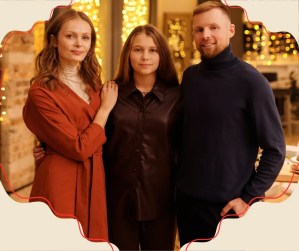
We’ve covered a lot of ground in this article, but the conversation is far from over. We invite you to share your thoughts, experiences, and questions in the comments section below. Whether you’re new to the concept of ethical non-monogamy or a seasoned practitioner, your perspective is valuable.
🗨️ Discussion Points
- What are your thoughts on the benefits of open relationships?
- Have you experienced societal stigma due to your relationship model?
- Do you think monogamy is truly outdated, or is there room for multiple relationship models?
📣 Share and Discuss
- Feel free to share this article on your social media platforms to foster a broader discussion. Use the hashtags #EthicalNonMonogamy and #OpenRelationships to join the conversation.
Thank you for taking the time to read this comprehensive exploration into the world of ethical non-monogamy and open relationships. We look forward to hearing your thoughts and continuing this enlightening discussion. After all, the more we talk, the more we learn—and the closer we come to redefining the future of love and relationships. 🌍❤️
